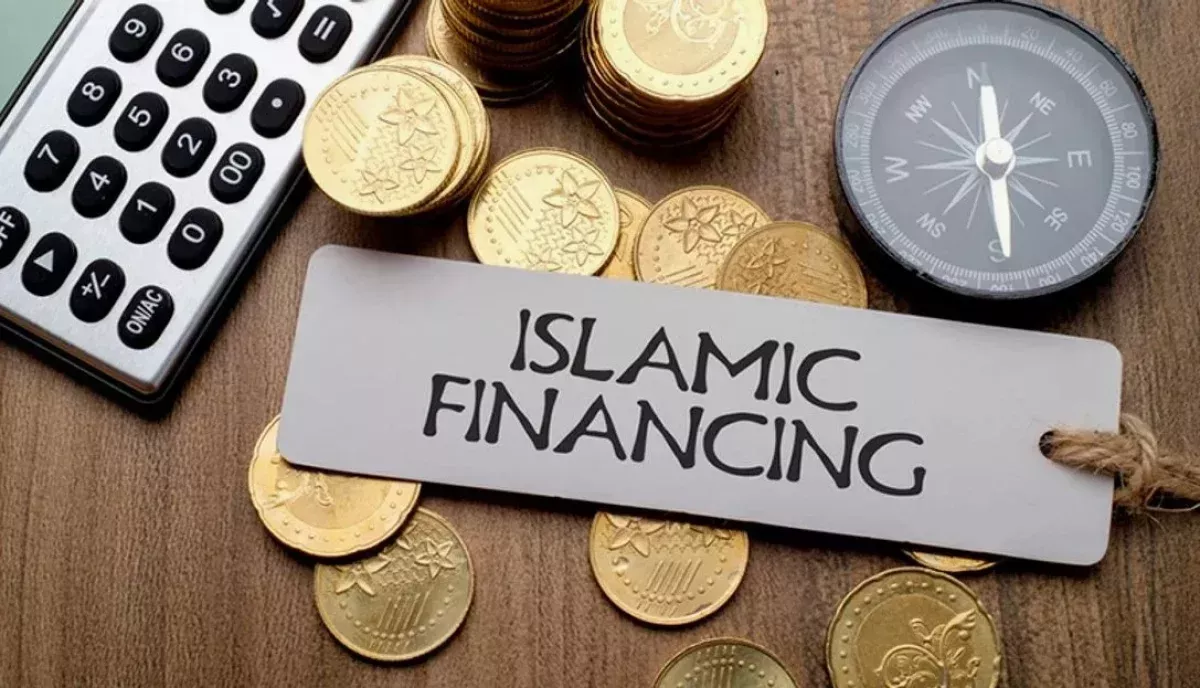Sharia-compliant loans Azerbaijan on the verge of introducing Islamic banking
Over the past two to three decades, Islamic finance has established itself as an effective financial tool worldwide, including in major non-Islamic economies such as Europe and the United States. In Azerbaijan, where reforms of the monetary and credit system have been ongoing for several years, alternative financial mechanisms are increasingly in demand, with Islamic banking emerging as a key option. Efforts in this area began more than a decade ago, with several local banks introducing Sharia-compliant credit instruments through pilot programs. Recently, interest in developing Islamic finance in the country has been reignited, as highlighted during the “Islamic Finance Forum 2025” held yesterday in Baku.
Islamic banking is a financial system based on the principles and rules of Sharia, along with corresponding ethical guidelines that prohibit usury and the charging of interest on loans. Activities involving gambling, as well as excessively risky or uncertain transactions, are also forbidden. In Sharia-compliant financial institutions, profits and losses are shared between the borrower and the lender, and money is treated as a medium of exchange and a measure of value rather than as an asset to generate profit. Typically, the capitalisation of Sharia-compliant credit structures is achieved through profits derived from investment income.
Globally, the development of Islamic banking began after 1975, and over the past few decades, Sharia-compliant credit, leasing, and insurance institutions have grown into a dynamic segment of the global financial system, successfully entering capital markets far beyond the Islamic world. Today, around 2,000 financial institutions operating under Sharia principles exist in approximately 80 countries. Of these, over 70% are Islamic banks, followed by Islamic investment funds, insurance companies (Takaful), and securities-based structures (Sukuk).

In total, the assets of the global Islamic finance market reached approximately $3.9 trillion in 2024, and the market is expected to grow to $6.67 trillion by 2027. “Because Islamic finance is based on real assets, it has been minimally affected by global crises,” noted Nazima Nurdali, Chief Operating Officer of the International Islamic Trade Finance Corporation (ITFC), during a recent event in Baku. In recent years, the average annual growth rate of Islamic bank assets has exceeded 10%, and these institutions have operated without significant losses even during the peak of the pandemic, subsequent hyperinflation, recession, and other crises of recent years.
Despite a decade-and-a-half of Islamic lending experience in the post-Soviet space, this trend developed rather slowly, and the share of Islamic banking in the total assets of the banking sector did not exceed 0.5%. A new wave of interest in such products has emerged relatively recently, gaining momentum after the pandemic crisis, rising monetary inflation, financial sanctions against the banking systems of several Eurasian Economic Union (EAEU) countries, and the large-scale withdrawal of concessional “long-term” credit lines from European banks and investment funds. In particular, financial institutions in Kazakhstan, Uzbekistan, Kyrgyzstan, and Tajikistan are increasingly turning to the development of alternative Islamic banking as a means of attracting long-term and relatively inexpensive financing, prompting corresponding reforms in their legislative and regulatory frameworks.
Similar challenges lie ahead for Azerbaijan, as highlighted by participants at the “Islamic Finance Forum 2025” held yesterday. “Azerbaijani banks are ready to implement Islamic banking; however, launching this model requires completing the establishment of the institutional framework,” said Yunus Abdulov, Executive Director of the Azerbaijan Banks Association (ABA), speaking at the forum. “Results from a survey conducted in the first half of the year showed that banks’ interest in Islamic finance is not only theoretical but also practical.” The ABA representative emphasized that some banks are already working on developing solutions and focusing on specific product lines: this interest is stable, the target client segments are clear, and the necessary knowledge base for the initial phase of implementation is already in place.
When discussing the demand in the promising Islamic finance market, it is worth noting that in Azerbaijan, around 97% of business entities are small and medium-sized enterprises (SMEs) or micro-enterprises. At the same time, the conventional banking system is often not well-suited to providing low-interest, long-term financing to small businesses, especially in the country’s regions. These challenges are particularly evident in agricultural lending due to high sectoral risks, insurance difficulties, the lack of liquid and bank-attractive collateral, and gaps in the financial reporting of local SMEs. In short, there is a clear market demand for Islamic banking services in Azerbaijan; what remains is the completion of the institutional framework.
Several years ago, a dedicated working group was established in Azerbaijan to implement international experience in Islamic banking. At the same time, the Central Bank of Azerbaijan (CBA) developed a roadmap for introducing the “Islamic window” model to apply Islamic banking products in the country. “Islamic banking is viewed as an alternative financing mechanism and is included among the strategic objectives of the CBA. For its development, international experience has already been analysed, and the most suitable approaches for Azerbaijan have been identified,” said Rustam Tahirov, Director of the Financial Sector Sustainable Development Department at the CBA, during the forum. “The primary goal is to determine a practical approach to Islamic banking in our country and to formulate and implement its strategy.” He added that, initially, independent experts will define Islamic finance products through the “Islamic window”: “In the first phase, the main tools, developed in consultation with financial and other associations, as well as independent and international experts, will be implemented.”

Notably, experts at the rating agency Moody’s believe that the planned introduction of “Islamic windows” in Azerbaijan will create new sources of revenue for banks. Moody’s views this initiative as a credit-positive development for the banking sector, noting that it will help diversify banks’ income structures by expanding the range of products and services based on Islamic principles.
Rustam Tahirov, Head of the CBA department, also highlighted upcoming legislative changes related to the introduction of Islamic banking mechanisms. Draft amendments have already been prepared for the Civil and Tax Codes, the Law “On Banks,” and several other regulatory acts. These drafts will be submitted to the government for consideration following consultations with participants in the domestic financial market. It is also worth noting that, as part of cooperation with the Organization of Islamic Cooperation (OIC), grant assistance has been provided, and at the request of the CBA, the Islamic Development Bank Institute (IsDBI) is developing the legal and regulatory framework for introducing Islamic bonds — Sukuk — in Azerbaijan. The project aims to establish a legislative framework for the issuance of Sukuk and other Islamic financial tools, strengthen the risk management capacity of financial institutions, create a monitoring mechanism to track the development of Islamic finance, and culminate with the first issuance of Islamic bonds in the country.
Work is also underway within the Azerbaijan Banks Association, where the establishment of a Sharia Supervisory Board is nearing completion. “The drafting of the board’s charter and the evaluation of candidates are almost finished, and steps toward formal approval will be taken in the near future. The board will serve as a single point of reference, overseeing everything from product design to the auditing of operations,” said Yunus Abdulov, Executive Director of the ABA, speaking at the forum.
“Based on ethical principles, transparency, risk-sharing, and fair income distribution, the Islamic financial system is becoming an important tool for sustainable development. We consider supporting the growth of this sector a strategic goal, not only in Türkiye but across the region, particularly in Azerbaijan,” said Tarik Akın, a representative of the Office of Investment and Finance under the President of Türkiye, during the forum. He noted that reconstruction efforts in the Karabakh region create broad investment opportunities for the application of Islamic financial tools, such as Sukuk, Takaful, and participation-based mechanisms.








